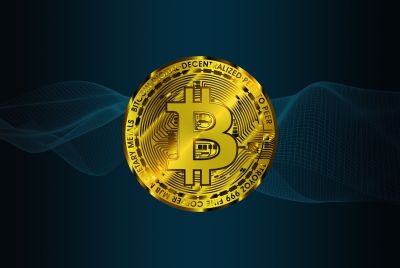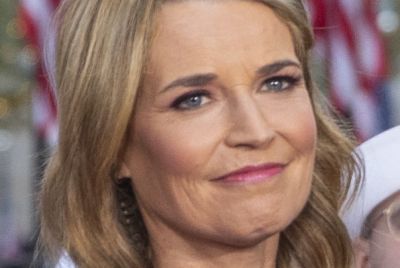The Gold Sub-Standard and the Inflation Cake
'Republicans eye return to gold standard' reads the headline in this morning's Financial Times.
We suppose we should be happy about that. And in a way we are. We see this as the natural evolution of gold. As its store of wealth function increases, so does its credibility.
But we are not particularly pleased that politicians want to set up a commission to discuss gold's potential role in the global financial system. It sounds good, but it's just a way for the republicans to act fiscally responsible. And let's be honest, there is just no way that gold will play an official role by diktat.
The same thing happened 30 years ago when Ronald Regan established the Gold Commission in 1981. After a lot of commissioning, they decided to go for the status quo. That is, a credit system unhindered by the pesky discipline that gold might impose.
Do you think that another commission is going to propose anything different? When it comes to politics, it pays to be cynical. The likelihood of the US government linking the dollar to gold again is about as low as you could imagine. And even if they tried, they'd do so at the wrong price, which is why a return to the gold standard is the wrong policy option.
That reminds us of Jim Rickards recent presentation in Sydney. In giving the audience a brief history of monetary regimes, he recounted the story of Britain's return to gold in 1925. It severed its link to gold in 1914 at the onset of World War I. During the war years it suffered from high inflation and it subsequently wanted to get its house in order.
So Winston Churchill, who was Chancellor of the Exchequer at the time, decided to return the pound to gold at the pre-war gold standard. In other words, he completely ignored the inflation of the currency in the preceding decade. By pegging the pound to gold at 1914 levels, he massively overvalued the currency. The results were disastrous. Deflation and high unemployment set in.
Rickards recalled that Churchill said it was the worst decision of his career...and given that Churchill had also presided over the Gallipoli landings (when he was First Lord of the Admiralty), it was a pretty big statement.
In his book Money: Whence it Came, Where it Went, John Kenneth Galbraith said:
'The 1925 return to the gold standard was perhaps the most decisively damaging action involving money in modern time.'
The point is that you can't trust politicians to get it right. And you can't trust a committee appointed by politicians either. What's the right gold price to link the dollar too? There is none.
The right price is what the market says it is. Does that mean it's somewhere between US$1,600 and $1,700 an ounce then? We doubt it. If the US government announced that the dollar was as good as gold at US$1,700 an ounce, what do you think all the holders of near worthless US government securities around the world would do?
They would swap their dollars for gold in a flash. The US gold hoard of around 8,144 tonnes, valued at US$490 billion at US$1,700 an ounce, would disappear in a matter of weeks, forcing the politicians to halt the gold standard they just approved.
The point is you can't link anything to anything and expect it to remain that way in the long run. Isaac Newton, who was Master of the Royal Mint in 1717, fixed gold and silver at a ratio of 15.5:1. This caused periodic shortages and oversupply of the metals as arbitrage come into play.
Einstein's Theory of Relativity applies to the financial world as well. Everything is relative to everything thing else. There is no fixed point. Fixing gold to any currency will eventually fail as a policy choice.
That doesn't mean gold can't still perform a crucial role in the financial system as the ultimate store of value. But we don't know what the 'free market' price of gold is when it's subject to the same fractional reserve banking techniques that modern 'credit money' is.
It is widely known banks sell 'unallocated' gold many times over. They work on the age-old proviso that not everyone will ask for the gold at the same time. Owning unallocated gold is like paying for an insurance policy that is guaranteed not to pay out when you need it.
So if everyone who thought they had a claim to gold actually owned it and had it in their possession, we might get closer to what the free market price of gold actually is. That is not going to happen anytime soon. But as this monetary system continues to deteriorate, as distrust in banks and counterparties increases, more and more people will take physical delivery. When the pool of unallocated gold dries up, the game is over.
Yet the mainstream play dumb on the issue of gold (or are dumb...see yesterday's quote from Mark Twain). The Financial Times article referenced above says:
'Inflation has remained under control in recent years, despite claims that expansion of the Fed's balance sheet would lead to runaway price rises, while gold has been highly volatile. The price of the metal is up by more than 500 per cent in dollar terms over the past decade.'
The idiotic point here is that the Fed and the dollar are the rock in a raging sea of gold volatility. To claim that inflation is under control is disingenuous. Politicians will point to low (and doctored) consumer price inflation numbers and claim they are doing a great job on inflation.
But in the US inflation is already baked in the cake. The government and the Fed have inflated ever since the US went off gold in 1971. And the government has ramped up its efforts since the crisis in 2008. For the past four years, it emitted deficits between US$1 and US$1.5 trillion. Their spending is the only thing keeping the US economy afloat.
The results of the inflation now lie dormant in central bank vaults all around the world. Thanks to the acceptance of the US dollar as an international reserve asset, the Fed doesn't have to monetise all of the government's deficits. Its foreign central banking friends assist in the task.
That's right, instead of the Fed printing all the money to support the US government's inflationary spending habits, the People's Bank of China and the Bank of Japan, among others, help out.
But Japan's economy is no longer producing its legendary trade surpluses, and capital flight from an imploding Chinese economy is on the rise too. In a few more years, these countries won't be able to fund US government spending like they do now. The Fed will have to do it. When it comes down to a choice between monetising debt to maintain spending or allowing the economy to sink into a deflationary depression, politicians will choose the monetisation option any day of the week.
The inflationary fuel is already there, we're just waiting for the Fed to throw a match. When that happens, gold will be hard to get at any price.
Regards,
Greg Canavan
for The Daily Reckoning Australia





















